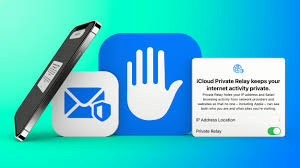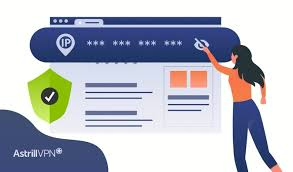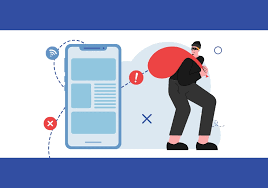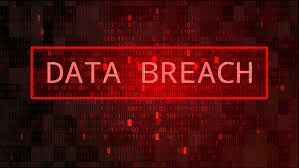Every single day, countless individuals find themselves ensnared by deceptive communications—whether they come in the form of emails, text messages, or phone calls—crafted by fraudsters masquerading as representatives from legitimate banks. This insidious practice is commonly known as phishing, and the consequences can be dire for those who fall victim, with losses potentially reaching into the hundreds or even thousands of dollars.

In an effort to combat this rampant issue, the American Bankers Association (ABA) has launched the BanksNeverAskThat initiative. This campaign aims to empower consumers with the knowledge and tools necessary to identify and avoid these fraudulent bank phishing schemes. For those seeking further advice on how to outsmart these criminals—including engaging videos, an interactive quiz, and a wealth of additional resources—the ABA invites you to visit their dedicated website at www.BanksNeverAskThat.com.
Phishing occurs when you receive communications that appear to originate from trusted companies or acquaintances, yet are actually crafted by unscrupulous scammers. Their ultimate goal is to entice you into clicking on a malicious link or divulging sensitive personal information, such as passwords or social security numbers, which they can exploit to steal your money or hijack your identity.
The bait they use is often all too familiar. Scammers cleverly adopt the names of reputable companies or impersonate individuals you may know. They might send you a text message, a ‘spoofed’ email, or even place a phone call that seems to come from a friend, family member, or an employee of a trusted institution—like your bank, credit card provider, government agency, or phone service provider.
Their approach is meticulously designed to appear credible. The messages may contain seemingly legitimate requests for assistance or urgent notifications that play on your emotions. Scammers often possess personal details about you—such as your date of birth or even your passwords—which they use to lend an air of authenticity to their claims. They may insist that immediate action is required to safeguard your account, offer help for a loved one in distress, or request confirmation of login credentials under the threat of dire consequences should you fail to comply swiftly.

They will press you for sensitive information like your passwords or bank account numbers and may prompt you to click on a link. Should you fall prey to this temptation, they can deploy harmful software capable of locking you out of your own computer or gaining access to your private financial data—potentially even from across international borders.
To evade this trap, it’s wise to take a moment to scrutinize any suspicious requests. Just as you would never hand over your house keys to a stranger, don’t relinquish access to your bank account without verifying the legitimacy of the request. Always remember: being cautious and taking time to investigate can save you from becoming another statistic in the growing number of phishing victims.
Identifying Signs of a Scam
In today’s digital landscape, it is crucial to be vigilant and recognize potential warning signs that may indicate a scam. One of the first red flags is when you receive communication from a company with which you do not have any existing account. Whether it’s an email, text message, or a phone call, if the sender is requesting sensitive account details—like your passwords—this should immediately raise your suspicions. Additionally, take note of the quality of the communication itself; if you spot grammatical mistakes or if something just doesn’t sit right with you, trust your instincts and proceed with caution.
Safeguarding Your Information
To protect yourself in this ever-evolving threat landscape, it’s essential to maintain robust security measures on your devices. Start by ensuring that the security software on your computer and mobile devices is always updated. Regularly backing up your data can also serve as a safety net should anything go awry.

Furthermore, consider enhancing your security settings by enabling multi-factor authentication wherever possible. This extra layer of security—often involving a text message with a verification code—makes it significantly harder for unauthorized users to access your accounts. If you suspect that any of your passwords have been compromised, change them immediately and refrain from using those same passwords across different accounts.
Utilizing cloud storage solutions such as Google Drive or Microsoft OneDrive can also be beneficial. These services allow you to recover your data easily in case your computer is infiltrated. Be particularly cautious about sharing information; never divulge personal details to anyone who contacts you unexpectedly. Only respond to requests if you initiated the communication yourself.
To stay informed about the latest scams, make it a habit to visit the Federal Trade Commission’s (FTC) scam alert site at https://consumer.ftc.gov/features/scam-alerts.
Reporting Phishing Attempts
If you encounter a phishing attempt, take immediate action by reporting it to the FBI’s Internet Crime Complaint Center (IC3). You can also forward any suspicious emails to [email protected]. This initiative involves collaboration among internet service providers, security companies, financial institutions, and law enforcement agencies dedicated to combating phishing schemes.

For those who have fallen victim to phishing scams, it’s essential to visit Identity Theft.gov. Phishing can often lead to identity theft, but there are proactive steps you can take to mitigate the risk. For further resources and guidance on how to identify and deal with phishing threats, make sure to check out https://www.ic3.gov/.
The Ongoing Battle Against Phishing
In light of the increasing prevalence of phishing attacks, organizations like the ABA Foundation and the FTC are working tirelessly to raise awareness about these threats. They aim to empower individuals with the knowledge needed to recognize potential scams and take appropriate action, thereby reducing the risk of falling victim to such deceitful practices. Remember, staying informed and cautious is your best defense in this digital age where scams lurk around every corner.

Maxthon
In the ever-evolving world of the internet, ensuring your safety while exploring its endless possibilities has never been more essential. The significance of choosing a web browser that places a high priority on security and privacy is paramount. Among the various options available, one browser stands out for its commitment to these values: Maxthon Browser, which you can use without spending a dime. This impressive browser is loaded with a multitude of built-in features designed to enhance your online experience, most notably an Adblocker and tools to combat tracking, both of which play a crucial role in safeguarding your privacy as you navigate the digital realm.
Maxthon takes its mission seriously, striving to offer a browsing experience that not only prioritizes safety but also honors the privacy of its users. With a dedicated focus on shielding personal data and online activities from a myriad of threats, Maxthon implements a comprehensive set of robust strategies aimed at protecting user information. By utilizing advanced encryption techniques, it ensures that your sensitive data remains confidential and secure while you surf the web.

When it comes to championing online privacy, Maxthon truly shines. This browser is thoughtfully equipped with a suite of features specifically designed to uphold user privacy, including ad blocking capabilities, anti-tracking functionalities, and an incognito mode. These integrated tools work together seamlessly to block intrusive ads and prevent tracking scripts from surveilling your online activities. Consequently, users can enjoy a more secure browsing environment, free from unwanted intrusions. Additionally, the incognito mode offers an extra layer of protection, allowing individuals to explore the web without leaving behind any digital traces on their devices.
Maxthon’s steadfast dedication to user privacy and security is further demonstrated through its regular updates and improvements. These ongoing enhancements are crucial for identifying and addressing potential vulnerabilities, ensuring that Maxthon remains vigilant against emerging threats. This unwavering commitment makes it a trustworthy choice for anyone in search of a private browsing experience. In summary, Maxthon Browser stands as a beacon of hope in the quest for online safety and privacy, empowering users to navigate the internet with confidence and peace of mind.
